Society for Literature, Science, and the Arts 2023
UNIVERSITY OF MINNESOTA PRESS: 40% OFF BOOKS
All books below are 40% off using code MNSLSA23. Code expires December 1, 2023.
Welcome to the University of Minnesota Press's virtual presence for attendees and enthusiasts of the 2023 annual meeting of the Society for Literature, Science, and the Arts.
Request a book for course adoption consideration.
Have a project? Contact our editorial team.
BROWSE BOOKS:
PHILOSOPHY AND THEORY // ART AND MEDIA // ENVIRONMENT
POLITICS AND ACTIVISM // ANIMALS AND SOCIETY // ANTHROPOLOGY
SCIENCE AND TECHNOLOGY // DIGITAL CULTURE // ETHNOGRAPHY
RACE // GENDER AND SEXUALITY // GEOGRAPHY
LITERATURE // LITERARY CRITICISM // DISABILITY STUDIES
-
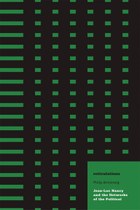 Reticulations
Jean-Luc Nancy and the Networks of the Political
Philip Armstrong
2009 Spring
Reticulations
Jean-Luc Nancy and the Networks of the Political
Philip Armstrong
2009 Spring
- Revealing how networks reopen our understanding of political discourse today
-
 Animal Capital
Rendering Life in Biopolitical Times
Nicole Shukin
2009 Spring
Animal Capital
Rendering Life in Biopolitical Times
Nicole Shukin
2009 Spring
- Illuminates the profound contingency of market life on animal figures and flesh
-
 Otaku
Japan’s Database Animals
Hiroki Azuma
2009 Spring
Otaku
Japan’s Database Animals
Hiroki Azuma
2009 Spring
- A publishing event—the highly influential best seller in Japan translated into English
-
 Seeing Witness
Visuality and the Ethics of Testimony
Jane Blocker
2009 Spring
Seeing Witness
Visuality and the Ethics of Testimony
Jane Blocker
2009 Spring
- Unearthing the meaning of witnessing in contemporary art and politics
-
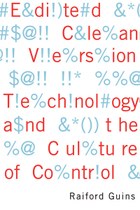 Edited Clean Version
Technology and the Culture of Control
Raiford Guins
2009 Spring
Edited Clean Version
Technology and the Culture of Control
Raiford Guins
2009 Spring
- Where is censorship in the age of digital technology?
-
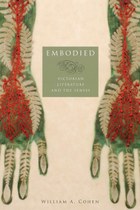 Embodied
Victorian Literature and the Senses
William A. Cohen
2008 Fall
Embodied
Victorian Literature and the Senses
William A. Cohen
2008 Fall
- Making sense of the body in Victorian literature
-
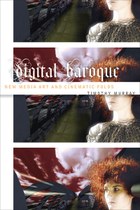 Digital Baroque
New Media Art and Cinematic Folds
Timothy Murray
2008 Fall
Digital Baroque
New Media Art and Cinematic Folds
Timothy Murray
2008 Fall
- A surprising and original application of theories of new media art
-
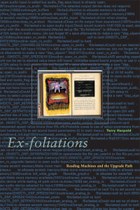 Ex-foliations
Reading Machines and the Upgrade Path
Terry Harpold
2008 Fall
Ex-foliations
Reading Machines and the Upgrade Path
Terry Harpold
2008 Fall
- A sophisticated consideration of technologies of reading in the digital age
-
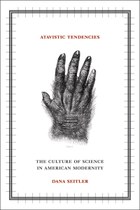 Atavistic Tendencies
The Culture of Science in American Modernity
Dana Seitler
2008 Fall
Atavistic Tendencies
The Culture of Science in American Modernity
Dana Seitler
2008 Fall
- A provocative exploration of the impact of the human sciences on literature, politics, and culture
-
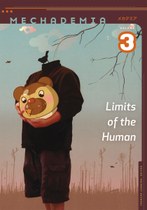 Mechademia 3
Limits of the Human
Frenchy Lunning, Editor
2008 Fall
Mechademia 3
Limits of the Human
Frenchy Lunning, Editor
2008 Fall
- Exploring the possibilities and perils of a posthuman future through visionary works of Japanese anime and manga
-
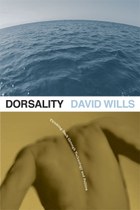 Dorsality
Thinking Back through Technology and Politics
David Wills
2008 Spring
Dorsality
Thinking Back through Technology and Politics
David Wills
2008 Spring
- An ambitious investigation of what lurks behind our humanity and our technology
-
 The Biopolitics of Breast Cancer
Changing Cultures of Disease and Activism
Maren Klawiter
2008 Spring
The Biopolitics of Breast Cancer
Changing Cultures of Disease and Activism
Maren Klawiter
2008 Spring
- A richly textured analysis of the body politics of breast cancer activism
-
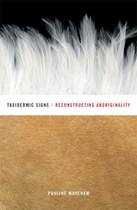 Taxidermic Signs
Reconstructing Aboriginality
Pauline Wakeham
2008 Spring
Taxidermic Signs
Reconstructing Aboriginality
Pauline Wakeham
2008 Spring
- A fascinating study of how taxidermy reinforces racial stereotypes of aboriginality
-
 Bíos
Biopolitics and Philosophy
Roberto Esposito
2008 Spring
Bíos
Biopolitics and Philosophy
Roberto Esposito
2008 Spring
- A significant political theorist advances the discussion of biopolitics
-
 When Species Meet
Donna J. Haraway
2007 Fall
When Species Meet
Donna J. Haraway
2007 Fall
- Whom do we touch when we touch a dog? How does this touch shape our multispecies world?
-
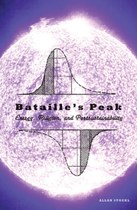 Bataille’s Peak
Energy, Religion, and Postsustainability
Allan Stoekl
2007 Fall
Bataille’s Peak
Energy, Religion, and Postsustainability
Allan Stoekl
2007 Fall
- An audacious exploration of Bataille’s philosophy of energy within current conservation debates
-
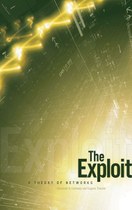 The Exploit
A Theory of Networks
Alexander R. Galloway and Eugene Thacker
2007 Fall
The Exploit
A Theory of Networks
Alexander R. Galloway and Eugene Thacker
2007 Fall
- From P2P protocols to al-Qaeda, a new approach to network culture
-
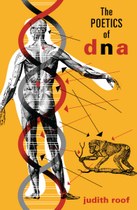 The Poetics of DNA
Judith Roof
2007 Spring
The Poetics of DNA
Judith Roof
2007 Spring
- Reveals the ideological effects of DNA metaphors and stories
-
 Mechademia 1
Emerging Worlds of Anime and Manga
Frenchy Lunning, Editor
2006 Fall
Mechademia 1
Emerging Worlds of Anime and Manga
Frenchy Lunning, Editor
2006 Fall
- A groundbreaking exploration of anime, manga, and Japanese popular culture
-
 The Tears of Things
Melancholy and Physical Objects
Peter Schwenger
2005 Fall
The Tears of Things
Melancholy and Physical Objects
Peter Schwenger
2005 Fall
- Reveals the object as the self’s ultimate other
-
 Insurgencies
Constituent Power and the Modern State
Antonio Negri
1999 Fall
Insurgencies
Constituent Power and the Modern State
Antonio Negri
1999 Fall
- An important work of revolutionary thought—with a new foreword
-
 Essays Critical and Clinical
Gilles Deleuze
1997 Fall
Essays Critical and Clinical
Gilles Deleuze
1997 Fall
- The final work of this essential thinker
-
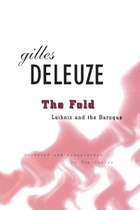 The Fold
Leibniz and the Baroque
Gilles Deleuze
1992 Fall
The Fold
Leibniz and the Baroque
Gilles Deleuze
1992 Fall
- In The Fold, Gilles Deleuze argues that Leibniz’s writings constitute the grounding elements of a Baroque philosophy and of theories for analyzing contemporary arts and science. A model for expression in contemporary aesthetics, the concept of the monad is viewed in terms of folds of space, movement, and time. Similarly, the world is interpreted as a body of infinite folds and surfaces that twist and weave through compressed time and space. According to Deleuze, Leibniz also anticipates contemporary views of event and history as multifaceted combinations of signs in motion and of the “modern” subject as nomadic, always in the process of becoming.
-
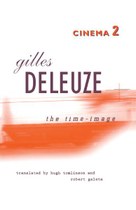 Cinema 2
The Time-Image
Gilles Deleuze
1989 Fall
Cinema 2
The Time-Image
Gilles Deleuze
1989 Fall
- Brings to completion Deleuze’s work on the implications of the cinematographic image. In Cinema 2, Deleuze explains why, since World War II, time has come to dominate film. Among the filmmakers discussed are Rossellini, Fellini, Godard, Resnais, Pasolini, and many others.
-
 The Differend
Phrases in Dispute
Jean-François Lyotard
1989 Spring
The Differend
Phrases in Dispute
Jean-François Lyotard
1989 Spring
- “This work is of vital importance in a period when revisionism of all stripes attempts to rewrite, and often simply deny, the occurrence of historical and cultural events, i.e. in attempting to reconstruct ‘reality’ in the convenient names of ‘truth’ and ‘common sense.’” French Review
-
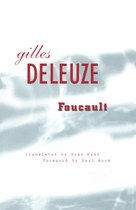 Foucault
Gilles Deleuze
1988 Spring
Foucault
Gilles Deleuze
1988 Spring
- The first analysis of Foucault’s work by a major philosopher working within the same poststructuralist tradition.
-
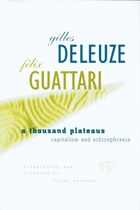 A Thousand Plateaus
Capitalism and Schizophrenia
Gilles Deleuze and Felix Guattari
1987 Fall
A Thousand Plateaus
Capitalism and Schizophrenia
Gilles Deleuze and Felix Guattari
1987 Fall
- A positive exercise in the affirmative, “nomad” thought called for in its companion volume, Anti-Oedipus. This series of essays address war and death, territoriality and the anthropology of groups, model theory, and psychosis.
-
 Kafka
Toward a Minor Literature
Gilles Deleuze and Felix Guattari
1986 Fall
Kafka
Toward a Minor Literature
Gilles Deleuze and Felix Guattari
1986 Fall
- Instead of interpreting Kafka’s work according to pre-existing categories or literary genres, they propose a concept of “minor literature”—the use of a major language that subverts it from within.
-
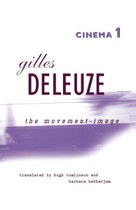 Cinema 1
The Movement-Image
Gilles Deleuze
1986 Fall
Cinema 1
The Movement-Image
Gilles Deleuze
1986 Fall
- A revolutionary work in philosophy and a book about cinema that identifies three principal types of image-movement using examples from the work of a diverse group of filmmakers including Griffith, Eisenstein, Cassavetes, and Altman.
-
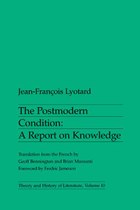 The Postmodern Condition
A Report on Knowledge
Jean-François Lyotard
1984 Spring
The Postmodern Condition
A Report on Knowledge
Jean-François Lyotard
1984 Spring
- This founding essay of the postmodern movement argues that knowledge-science, technology, and the arts-has undergone a change of status since the 19th century and especially since the late 1950s.
-
 Ten Theses for an Aesthetics of Politics
Davide Panagia
2016 Fall
Ten Theses for an Aesthetics of Politics
Davide Panagia
2016 Fall
- Reckoning the unsettled relationship between aesthetics and politics
-
 The Politics of Bitcoin
Software as Right-Wing Extremism
David Golumbia
2016 Fall
The Politics of Bitcoin
Software as Right-Wing Extremism
David Golumbia
2016 Fall
- The first comprehensive account of Bitcoin’s underlying right-wing politics
-
 Digital Stockholm Syndrome in the Post-Ontological Age
Mark Jarzombek
2016 Fall
Digital Stockholm Syndrome in the Post-Ontological Age
Mark Jarzombek
2016 Fall
- Rethinking the philosophical and anthropological basis of our ontology